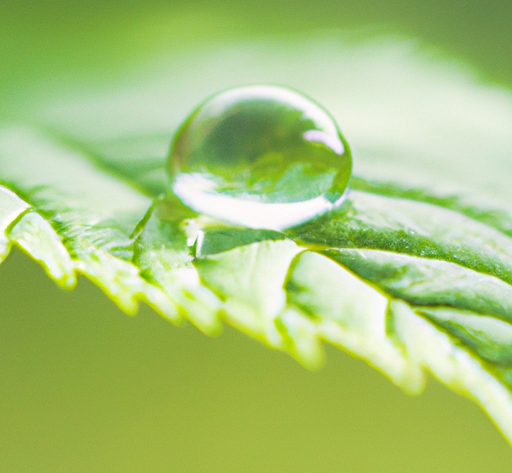If you’re looking for quick and effective ways to achieve clear skin, look no further! This article provides valuable insights and easy-to-follow tips on how to get clear skin fast. Whether you’re dealing with acne, dullness, or uneven skin tone, these tried and tested methods will help you achieve the radiant and flawless complexion you desire. From establishing a consistent skincare routine to incorporating healthy lifestyle habits, you’ll discover practical advice that will have you on your way to clear and glowing skin in no time.
Identify your skin type
Before you can effectively take care of your skin, it’s important to identify your skin type. Understanding your skin’s needs will help you choose the right products and establish a skincare routine that works best for you.
Normal skin
If you have normal skin, consider yourself lucky! Normal skin is characterized by few imperfections, barely visible pores, and a balanced oil and moisture content. To maintain your skin’s healthy state, a simple and gentle skincare routine is usually sufficient. Cleansing, moisturizing, and protecting your skin with sunscreen should be your main focus.
High quality and most loved: The Vanicream Gentle Facial Cleanser is free from common irritants and is perfect for maintaining a simple skincare routine. It’s highly rated and loved for its gentleness.
Dry skin
Dry skin can be challenging to manage, but with the right skincare routine, you can restore moisture and achieve a healthy glow. Dry skin often feels tight and rough, with visible flaking and redness. To combat dryness, opt for gentle and hydrating cleansers that won’t strip away natural oils. Follow up with a rich moisturizer to lock in moisture and provide relief for your skin.
Try: Weleda Skin Food is a cult-favorite, intensely moisturizing cream made from natural ingredients. It’s ideal for very dry skin and has numerous glowing reviews.
Oily skin
If your face tends to become shiny and greasy throughout the day, you likely have oily skin. Oily skin is characterized by enlarged pores, excessive sebum production, and a higher likelihood of developing acne. To keep oiliness in check, choose cleansers specifically formulated for oily skin. Exfoliating regularly can also help remove dead skin cells and unclog pores. Look for lightweight moisturizers and oil-free products to avoid adding unnecessary shine to your skin.
Try the: COSRX BHA Blackhead Power Liquid, This chemical exfoliator is a favorite for oily skin types. It’s formulated with natural BHA to help unclog pores and reduce oiliness.
Combination skin
Combination skin is the most common skin type, characterized by having both dry and oily areas on the face. Typically, the T-zone (forehead, nose, and chin) is oilier, while the cheeks remain drier. To address combination skin, it’s important to strike a balance. Opt for a gentle cleanser that won’t strip away natural oils, and consider using different products for dry and oily areas of your face. Moisturize both dry and oily regions accordingly to keep your skin well-hydrated.
Establish a skincare routine
Now that you’ve identified your skin type, it’s time to establish a skincare routine that suits your needs. Consistency is key, so aim to follow this routine morning and night for optimal results.
Cleanse your skin
Cleansing is the first step in any skincare routine. It helps remove dirt, oil, and impurities that accumulate on the skin’s surface throughout the day. Choose a cleanser that is gentle and suited to your skin type. Avoid harsh soaps and opt for cleansers with hydrating or oil-controlling properties depending on your skin’s needs. Massage the cleanser onto your face in circular motions, then rinse thoroughly with lukewarm water.
Try: the Cetaphil Gentle Skin Cleanse, this cleanser is a dermatologist-recommended product that is suitable for all skin types, gentle, and effective.
Exfoliate regularly
Exfoliation is an important step to maintain clear and radiant skin. It helps remove dead skin cells, unclogs pores, and promotes cell turnover. However, be careful not to overdo it, as excessive exfoliation can irritate your skin. Depending on your skin type, aim to exfoliate 1-3 times a week. Choose a gentle exfoliator that won’t cause micro-tears in your skin. Massage the exfoliator onto damp skin, focusing on areas prone to congestion, then rinse off thoroughly.
Try: Paula’s Choice Skin Perfecting 2% BHA Liquid Exfoliant, This product is suitable for all skin types and is known for its gentle yet effective exfoliating properties.
Moisturize daily
No matter your skin type, moisturizing is a crucial step in your skincare routine. Moisturizers help hydrate and protect your skin, keeping it supple and healthy. Choose a moisturizer that is suitable for your skin’s needs. For dry skin, opt for a richer and more hydrating formula. Oily or combination skin may benefit from lightweight and oil-free moisturizers. Gently massage the moisturizer onto your face and neck using upward motions, allowing it to fully absorb.
Use sunscreen
One of the most important steps in your skincare routine is wearing sunscreen every day, regardless of the weather or season. Sunscreen helps protect your skin from harmful UV rays that can cause premature aging, sunburns, and even skin cancer. Choose a broad-spectrum sunscreen with an SPF of at least 30. Apply it generously to your face and any exposed skin, reapplying every two hours or more frequently if sweating or swimming.
Try: EltaMD UV Clear Broad-Spectrum SPF 46, This sunscreen is recommended by dermatologists and offers broad-spectrum protection without irritating the skin.
Maintain a healthy diet
Your skin’s overall health is influenced by what you put into your body. By maintaining a healthy diet, you can provide your skin with the essential nutrients it needs to stay clear and radiant.
Eat a balanced diet
A balanced diet rich in fruits, vegetables, lean proteins, whole grains, and healthy fats is essential for healthy skin. These foods provide a wide range of vitamins, minerals, antioxidants, and essential fatty acids that promote skin health and repair. Incorporate a variety of colorful fruits and vegetables into your meals to ensure you’re getting a good mix of nutrients.
Try: SkinGlow Multivitamins for all-around skin nourishment.
Avoid processed foods
Processed foods, such as sugary snacks and fast food, can negatively impact your skin’s health. These foods are often high in refined sugars, unhealthy fats, and artificial ingredients that can contribute to inflammation and breakouts. Opt for whole foods instead, focusing on fresh and unprocessed options whenever possible.
Try: HealthyMunch Organic Snack Box for guilt-free snacking.
Stay hydrated
Proper hydration is essential for maintaining skin health. It helps flush out toxins, keep your skin moisturized, and improve overall complexion. Aim to drink at least 8 glasses of water a day or more if you engage in physical activities or live in a dry climate. If plain water bores you, try infused water with fresh fruits or herbal teas to add a touch of flavor.
Try: EcoHydrate Glass Water Bottle to keep water fresh and encourage hydration.
Include skin-friendly foods
Certain foods offer specific benefits for your skin. Incorporating these skin-friendly foods into your diet can help improve your complexion from the inside out. Foods like berries, citrus fruits, avocados, nuts, and fatty fish are rich in vitamins, antioxidants, and healthy fats that nourish your skin. Remember, a healthy and glowing complexion starts with nourishment from within.
Try: The Beauty Chef Cookbook filled with recipes that boost skin health.
Manage stress levels
Stress can take a toll on your skin’s health and appearance. It can trigger breakouts, worsen existing skin conditions, and contribute to premature aging. Therefore, it’s important to prioritize stress management in your daily life to support your overall well-being and your skin’s health.
Try: Calmify Stress Ball to help alleviate stress when needed.
Practice relaxation techniques
Engaging in relaxation techniques can help reduce stress levels and positively impact your skin. Explore practices such as deep breathing exercises, meditation, yoga, or mindfulness to help calm your mind and promote a sense of inner peace. Find the techniques that work best for you and incorporate them into your daily routine.
Get enough sleep
Sleep is essential for your overall health, including your skin’s health. Lack of sleep can result in dull skin, dark under-eye circles, and an increased risk of breakouts. Aim for 7-9 hours of quality sleep each night to allow your body to restore and rejuvenate itself. Establish a consistent sleep schedule, create a calming bedtime routine, and limit exposure to electronic devices before bed for a good night’s sleep.
Try: DreamSoft Memory Foam Pillow for a restful night’s sleep.
Engage in physical activity
Physical activity is not only great for your overall well-being but also benefits your skin. Regular exercise improves blood circulation, delivering oxygen and nutrients to your skin, resulting in a healthy and vibrant complexion. Aim for at least 30 minutes of moderate-intensity exercise, such as brisk walking, jogging, or cycling, most days of the week. Find activities that you enjoy to make it easier to incorporate them into your routine.
Seek support when needed
If stress becomes overwhelming or interferes with your daily life, don’t hesitate to seek support from friends, family, or professionals. Talking to a trusted person or seeking therapy can help you navigate through challenging times and better manage stress. Remember, taking care of your mental health is just as important for your skin as it is for your overall well-being.
Avoid harmful habits
To maintain clear and healthy skin, it’s important to eliminate or reduce harmful habits that can damage your skin.
Don’t smoke
Smoking is not only harmful to your overall health but also detrimental to your skin. It accelerates the aging process, leads to wrinkles, and contributes to a dull complexion. Quitting smoking will not only improve your skin’s appearance but also benefit your overall health in numerous ways. Seek support and resources to help you quit the habit if needed.
Limit alcohol intake
Excessive alcohol consumption can dehydrate your skin, leading to dryness, redness, and inflammation. It also dilates blood vessels, contributing to the development of spider veins and rosacea. Limit your alcohol intake and drink in moderation to maintain healthy skin. Opt for hydrating drinks like water or herbal teas instead.
Avoid touching your face
Your hands come into contact with countless bacteria and dirt throughout the day. Touching your face frequently can transfer these impurities onto your skin, leading to breakouts and infection. Be mindful and avoid touching your face unnecessarily. If you need to touch it, make sure your hands are clean or use a tissue or clean cloth as a barrier.
Clean your phone regularly
Your smartphone can harbor a significant amount of germs and bacteria, which can transfer to your face when you make calls. Clean your phone regularly with disinfectant wipes to remove dirt and bacteria buildup. Additionally, consider using headphones or speakerphone to minimize contact between your phone and your skin.
Treat acne and blemishes
Even with a solid skincare routine, occasional acne and blemishes may still arise. Here are some strategies to effectively address them.
Use over-the-counter treatments
Over-the-counter acne treatments containing ingredients like benzoyl peroxide or salicylic acid can be effective in treating mild to moderate acne. These ingredients help to unclog pores, reduce inflammation, and kill acne-causing bacteria. Follow the instructions provided and be patient, as it may take a few weeks to see results.
Apply spot treatments
Spot treatments are targeted products designed to treat specific areas of acne or blemishes. They often contain ingredients like tea tree oil, sulfur, or witch hazel, which aid in drying out and healing the affected area. Apply a small amount directly to the blemish before bed and allow it to work overnight. Remember not to overuse spot treatments, as they can dry out your skin.
Try: ClearNow Acne Treatment Cream for spot treatment of acne.
Consider natural remedies
Some natural remedies, such as tea tree oil, aloe vera, or honey, have been reported to have anti-inflammatory and antibacterial properties. These remedies can be used as alternatives or complements to over-the-counter treatments. However, if you opt for natural remedies, do a patch test first to ensure you aren’t allergic or overly sensitive to any of the ingredients.
Consult a dermatologist
If your acne persists or is severe, it’s crucial to seek professional help from a dermatologist. They can assess your skin’s condition, determine the underlying causes, and provide personalized treatment options. Dermatologists may prescribe stronger medications or suggest in-office treatments, such as chemical peels or extractions, to help clear up your skin.
Take care of your skin from the inside
In addition to an external skincare routine, nourishing your skin from the inside can contribute to its overall health and radiance.
Stay hydrated
Maintaining hydration is essential for your skin’s well-being. Drink an adequate amount of water daily to keep your skin moisturized and functioning optimally. Additionally, consume hydrating foods, such as watermelon, cucumbers, and citrus fruits, that can supplement your hydration efforts.
Try: HydraBoost Serum for intense skin hydration.
Consume vitamins and minerals
Certain vitamins and minerals play a vital role in skin health. Vitamin C promotes collagen production, vitamin E acts as an antioxidant, and zinc helps regulate oil production. Incorporate foods rich in these nutrients into your diet, such as citrus fruits, nuts, seeds, green leafy vegetables, and seafood. Consider consulting a healthcare professional about supplements if your diet lacks essential vitamins and minerals.
Include antioxidants in your diet
Antioxidants help protect your skin from free radicals, which can damage cells and contribute to aging and other skin issues. Foods rich in antioxidants include berries, leafy greens, dark chocolate, and green tea. Including these foods in your diet can have a positive impact on your skin’s health.
Consider supplements
In addition to a healthy diet, certain supplements may support your skin health. Consult with a healthcare professional or dermatologist to determine if supplements like collagen peptides, omega-3 fatty acids, or probiotics are suitable for your specific needs. Remember, supplements are meant to complement a healthy lifestyle, not replace it.
Protect your skin from environmental factors
Environmental factors, such as the sun’s rays, harsh weather conditions, and pollution, can harm your skin. Protecting your skin from these elements is crucial for its long-term health and appearance.
Wear sunscreen daily
Sun protection is essential, regardless of the weather or season. Choose a broad-spectrum sunscreen with an SPF of at least 30 and apply it generously to all exposed areas of your skin, including your face, neck, and hands. Reapply every two hours or after swimming or sweating. Sunscreen helps prevent sunburn, premature aging, and reduces the risk of skin cancer.
Try: UVGuard Broad-Spectrum Sunscreen for daily skin protection.
Avoid excessive sun exposure
While sunscreen is important, it’s equally essential to minimize sun exposure, especially during peak hours when the sun’s rays are the strongest. Seek shade, wear protective clothing, and use accessories like hats and sunglasses to shield your skin from the sun’s harmful UV rays.
Protect your skin in extreme weather conditions
Extreme weather conditions can also take a toll on your skin. In cold and dry weather, use a humidifier indoors to add moisture to the air and prevent your skin from becoming excessively dry. When it’s hot and humid, opt for lightweight, oil-free moisturizers and wear loose, breathable clothing to prevent sweat from clogging your pores.
Shield your skin from pollution
Pollution, such as smog and airborne toxins, can cause free radical damage to your skin. Protect your skin by using a barrier, such as a lightweight moisturizer or serum, to create a barrier between your skin and pollutants. Additionally, consider investing in air purifiers for your home and avoiding heavily polluted areas when possible.
Establish a good skincare routine for makeup
If you enjoy wearing makeup, it’s important to establish a skincare routine that supports your skin health while allowing you to express yourself with cosmetics.
Remove makeup before bed
Sleeping with makeup on can clog your pores, leading to breakouts and potential skin irritation. Always remove your makeup before bed using a gentle makeup remover or cleansing oil. Follow up with a cleanser to ensure your skin is thoroughly cleaned and ready for nighttime skincare products.
Choose non-comedogenic products
Non-comedogenic products are specifically formulated to avoid clogging your pores. When selecting makeup products, look for those labeled as non-comedogenic to reduce the risk of breakouts. Additionally, consider choosing products without added fragrances or irritating ingredients, especially if you have sensitive skin.
Clean makeup brushes regularly
Makeup brushes and sponges can harbor bacteria and product buildup, which can transfer to your skin and cause breakouts. Clean your brushes and sponges regularly to prevent this from happening. Use a gentle brush cleanser or mild shampoo, and allow them to air dry completely before using them again.
Allow your skin to breathe
While makeup can enhance your natural beauty, it’s important to let your skin breathe. Try to have makeup-free days whenever possible to give your skin a chance to rejuvenate and recover. On these days, focus on maintaining a consistent skincare routine and enjoying your natural complexion.
Seek professional help and treatments
Sometimes, a professional opinion or treatment can provide the extra boost your skin needs to achieve and maintain its best condition.
Consult a dermatologist
If you have persistent skin concerns or specific issues that home remedies or over-the-counter products haven’t resolved, it’s wise to consult a dermatologist. They can assess your skin’s condition in-depth, provide personalized advice, and recommend suitable treatments or prescription medications tailored to your needs.
Consider professional facials or treatments
Professional facials and treatments can provide deep cleansing, exfoliation, and hydration that may not be achievable at home. Treatments like chemical peels, microdermabrasion, or HydraFacials can help improve your skin’s texture, tone, and overall appearance. Consult with a licensed esthetician or dermatologist to determine which treatments are suitable for your skin type and concerns.
Explore laser or light therapies
Laser and light therapies are advanced treatments that can address various skin concerns, such as acne, pigmentation, and signs of aging. These treatments work by stimulating collagen production, reducing inflammation, and targeting specific skin issues. If you’re interested in these treatments, consult with a dermatologist or laser specialist to discuss the options available and determine the most appropriate course of action for your skin.
Learn about advanced skincare techniques
Skincare is a constantly evolving field, with new techniques and innovations continuously emerging. Stay informed and educate yourself about the latest advancements in skincare. Research reputable sources, follow skincare experts, and don’t hesitate to ask professionals for their insights. Being knowledgeable about advanced skincare techniques can help you adapt your routine and make more informed decisions about your skin’s health.
As you embark on your journey to clear skin, remember that consistency and patience are key. Establishing a skincare routine that addresses your skin’s specific needs, maintaining a healthy lifestyle, protecting your skin from harmful elements, and seeking professional guidance when needed will all contribute to achieving the clear and healthy skin you desire. Remember, taking care of your skin goes beyond aesthetics – it’s an investment in your overall well-being.
Affiliate Disclosure: This article may contain affiliate links, which means we may receive a commission on any sales of products or services we write about. This comes at no additional cost to you. All opinions are our own, and we only recommend products we genuinely believe in.




